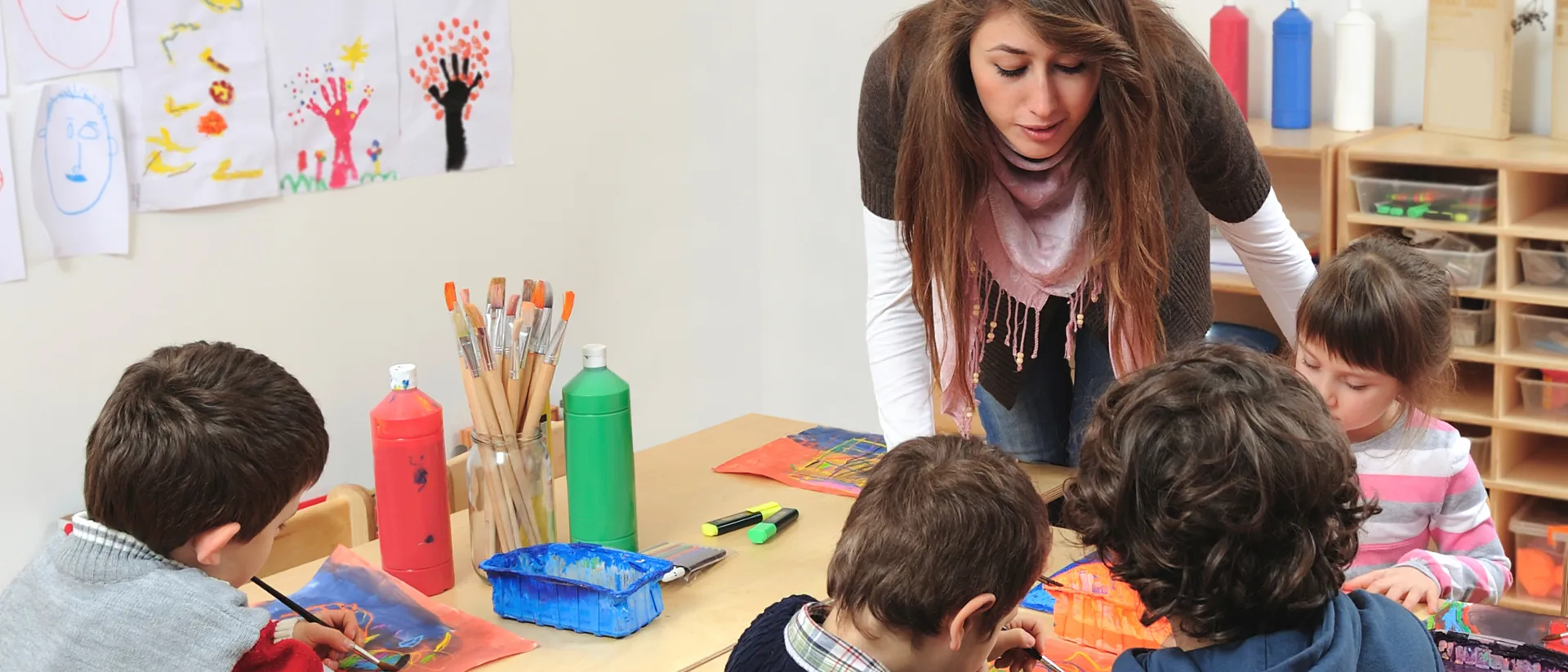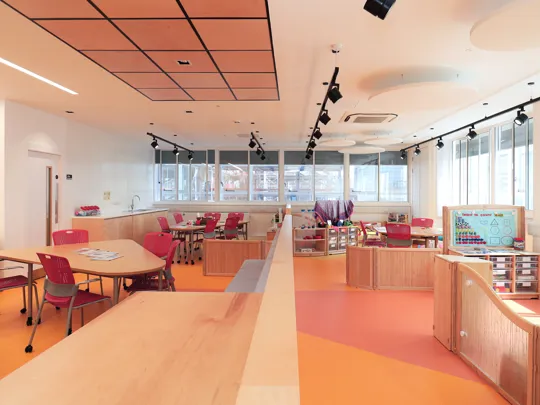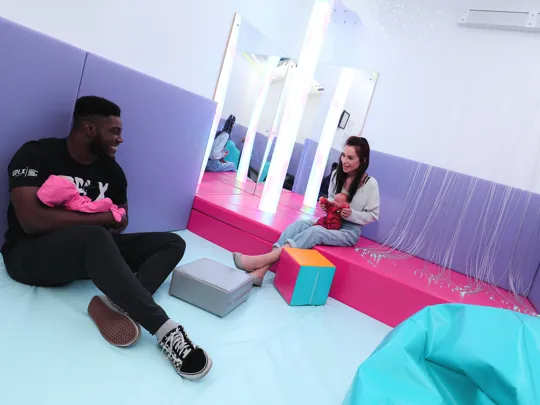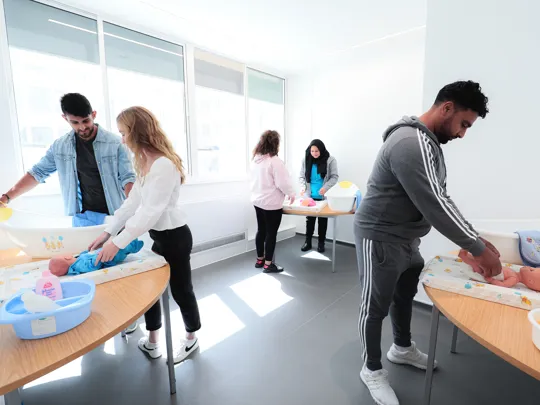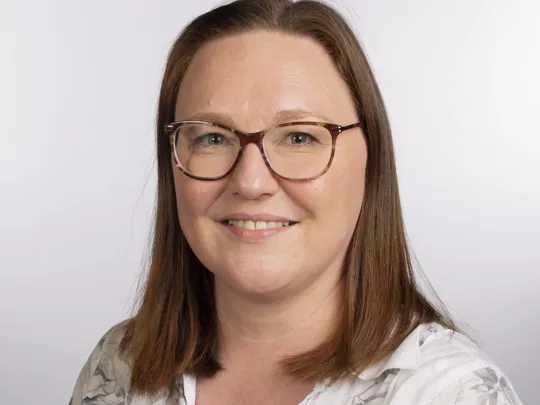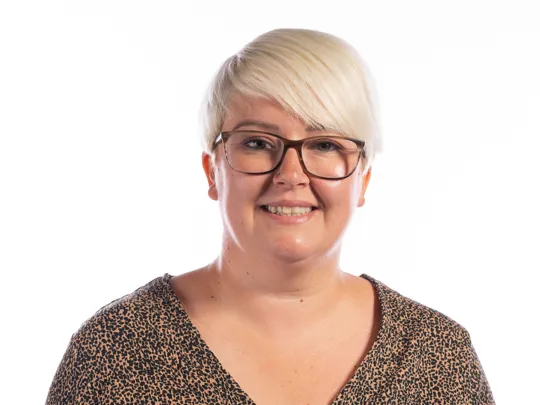of graduate employers say relevant experience is essential to getting a job with them
Why choose this college course?
- WORK PLACEMENT – Gain first-hand experience of the industry by spending two days each week on placement in an appropriate setting with children
- PRACTICAL APPLICATION – Get hands-on training in our Early Years simulation suite and study in a supportive environment with like-minded young people
- MOVE UP TO UNIVERSITY – Want to continue your learning journey after college? Progress your training to degree level on our wide range of university education and childcare courses
Our facilities
Students on our college education and childcare courses have the opportunity to learn in our Early Years simulation and practice development suite, providing a safe environment to help you prepare for placement, consolidate your learning and further refine your skills guided by our experienced staff.
Early Years Simulation Suite
Take a look around our Early Years Simulation Suite that aims to boost your experience before you complete your studies.
Course breakdown
Topics you will study
- Roles and responsibilities of the early years practitioner
- Safeguarding, protection and welfare
- Supporting children’s development
- Delivering activities and purposeful play
- Children and play
- Wellbeing for a healthy lifestyle
- Promoting physical activity
- Supporting Special Educational Needs and Disability (SEND)
- Promoting positive behaviour
- Partnership working
- The needs of the child in preparing for school
Please note: Units/topics of study are subject to change
You will also have an individual study programme to help you build the skills and experience you need to progress onto higher education or gain employment.
Maths and English
To help you secure your dream career, you will also continue developing your maths and English skills alongside your full-time course. If you haven’t achieved GCSE grade 4/C in English and maths at age 16, you will continue to study these through resits or taking Functional Skills at an appropriate level.
How maths will support your career
- For young children, learning basic numbers and their differences is a key foundation block in their learning and central to the National Curriculum.
- In a nursery, the ability to calculate parent payments is very important.
How English will support your career
- Accurate spelling and a wide and specialist vocabulary are key when working with children and parents.
- Good quality speaking and listening skills are needed when communicating with colleagues, children and parents.
- The National Curriculum requires that children develop good English skills in speaking and written communication.
- Accurate reading is a vital skill when using medical documents as well as when following health and safety guidelines.
- Secure English is important when preparing a CV.
Entry requirements
Our education lecturers are looking for students who are committed, enthusiastic and have a desire to excel in the early years and care sector, so please contact Admissions if you do not have the specific requirements outlined below.
If you are unsure if your qualification is equivalent or if you wish to check if you meet the entry requirements for this course, please call 0121 214 2919, email feadmissions@ucb.ac.uk or use our live chat.
Academic requirements
- 4 GCSEs at grade 3 (grade D) including English (Language or Literature) and Maths, or equivalent.
English and maths
If you do not have a grade 4/C or above in English and maths and you are under 19, you will be required to study these subjects alongside your vocational subject. After enrolment you will complete an assessment with our teaching team so we can ensure you receive appropriate English and maths support.
Applicants over 19 are not required to complete maths and English.
Supporting documents required
- School applicants will be required to provide a good school report, which must include attendance. This will be assessed in conjunction with your qualifications and application during the confirmation of your place at University College Birmingham.
- If you are a school leaver (over 19), you will be required to provide a reference from a previous education provider or employer in support of your application.
Disclosure and Barring Service (DBS)
This course requires a Disclosure and Barring Service (DBS) check. Information about the DBS check and how to apply for it will be sent to you by our placement team after enrolment. University College Birmingham will coordinate and fund the completion of the DBS check.
Guaranteed progression
Students who achieve the Early Years Practitioner CACHE Level 2 Diploma and achieve GCSE English Language Grade 4 and Maths at Grade 4 (studied alongside the programme) will be permitted to progress onto Level 3 T-level Technical Qualification in Education and Early Years: Education (QN).
Key information
Teaching and assessment
All units are internally assessed using a range of methods which could include direct observation in the workplace, a portfolio of evidence, written assignments and tasks set by the awarding body.
Our teaching and assessment is underpinned by our Teaching, Learning and Assessment Strategy 2021-2024.
Uniform and kit costs
This course requires a uniform and kit costing approximately £30, depending on the items you purchase. (Prices are subject to change each year – exact costs and information on how to order required items will be provided to you prior to enrolment.)
Work placements
Work placements offer a wealth of benefits alongside your studies, helping you put your learning into practice, develop your skills and understanding of the workplace, boost your CV for your chosen career or enhance your UCAS application for higher education. Our Hired employability team can help find the ideal placement for you.
Our Early Years Level 2 course requires you to spend two days per week on practical training in an appropriate setting with children, such as a day nursery or nursery school. Our Hired staff will visit you out on placement to ensure you gain the right practical skills.
Work alongside experts in your sector
A snapshot of some of the employers we have worked with:
- Adderley Children's Centre
- St Thomas Centre Nursery
- Busy Bees Nurseries
- Laugh 'n' Learn Day Nursery
- Lime Tree Children's Centre

There is a great atmosphere at the college. Everyone wants the same thing and there is a common interest. You can have in-depth conversations about topics that interest you, and you have access to the best resources of anywhere. I really enjoy the hands-on placement experience, which the college helps you find.
Career opportunities
On completion of the Level 2, you could progress onto our Childcare and Education Level 3 course, or you could pursue a range of employment opportunities within the industry.
Note: Some roles below may require further study/training. The roles and salaries below are intended as a guide only.
Nursery worker
Average Salary: £19,000
Teaching assistant
Average Salary: £23,000
Childcare worker
Average Salary: £16,893
Early years educator
Average Salary: £18,526
Family support worker
Average Salary: £21,000

Isha’s Story
Keen to one day teach children up to seven years old, Isha’s course was the first step to success and her dream career.
